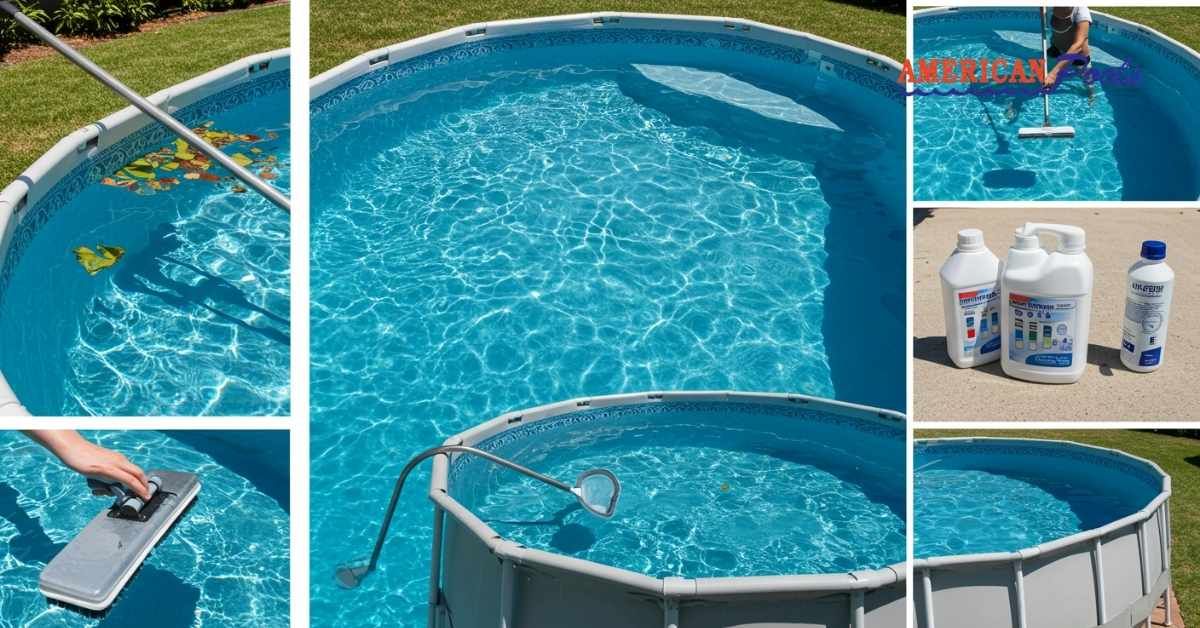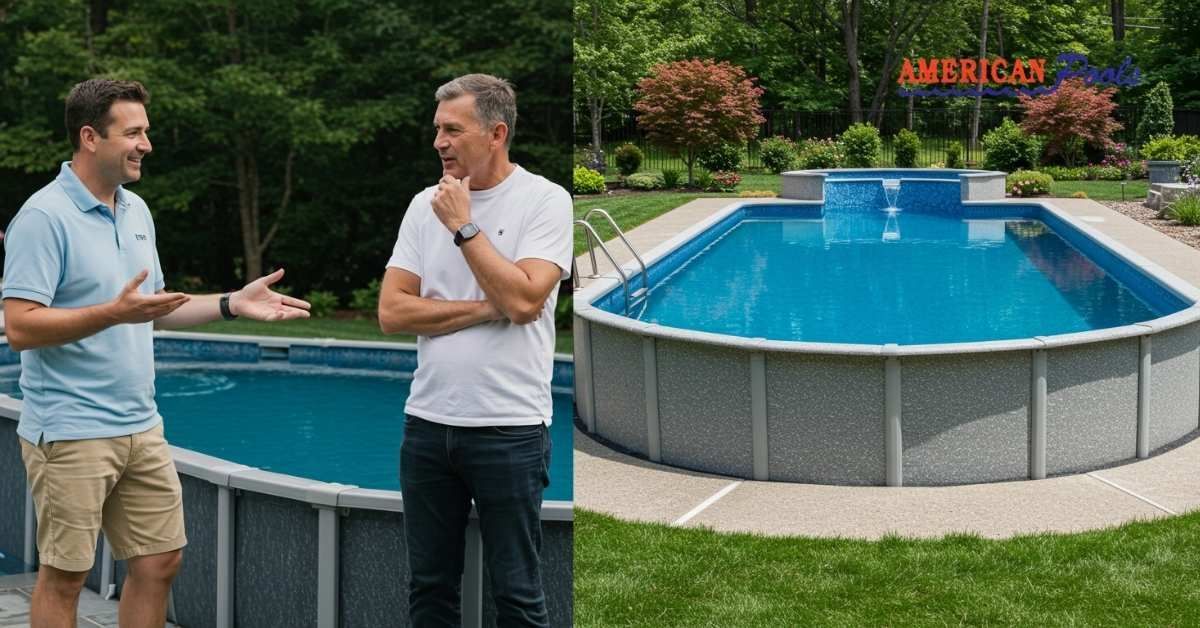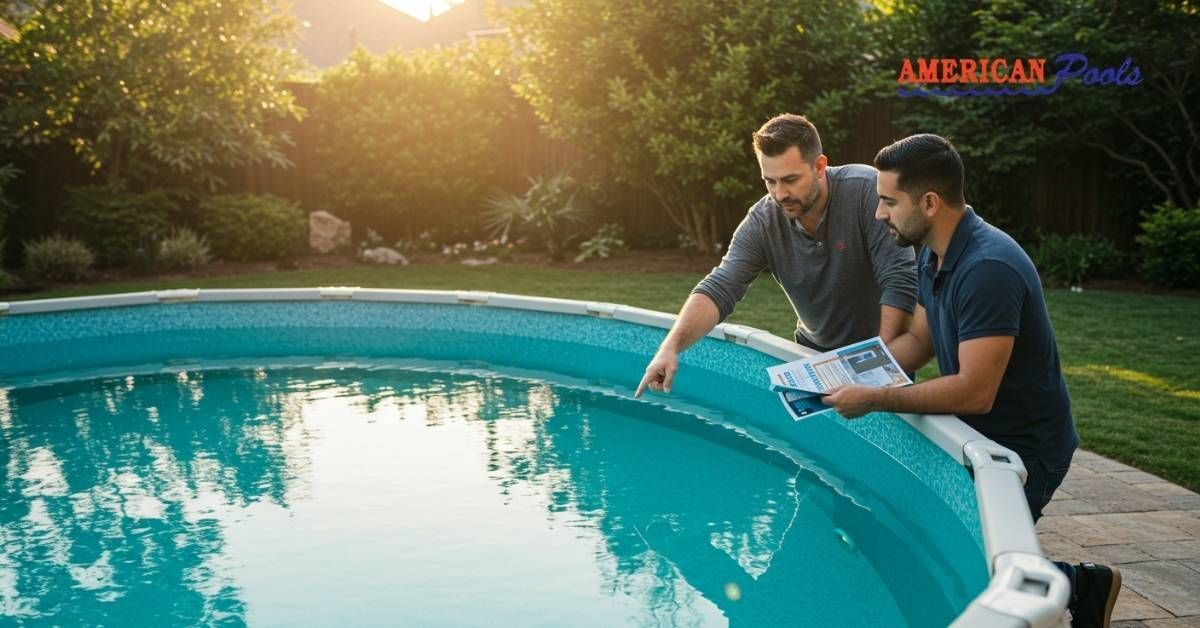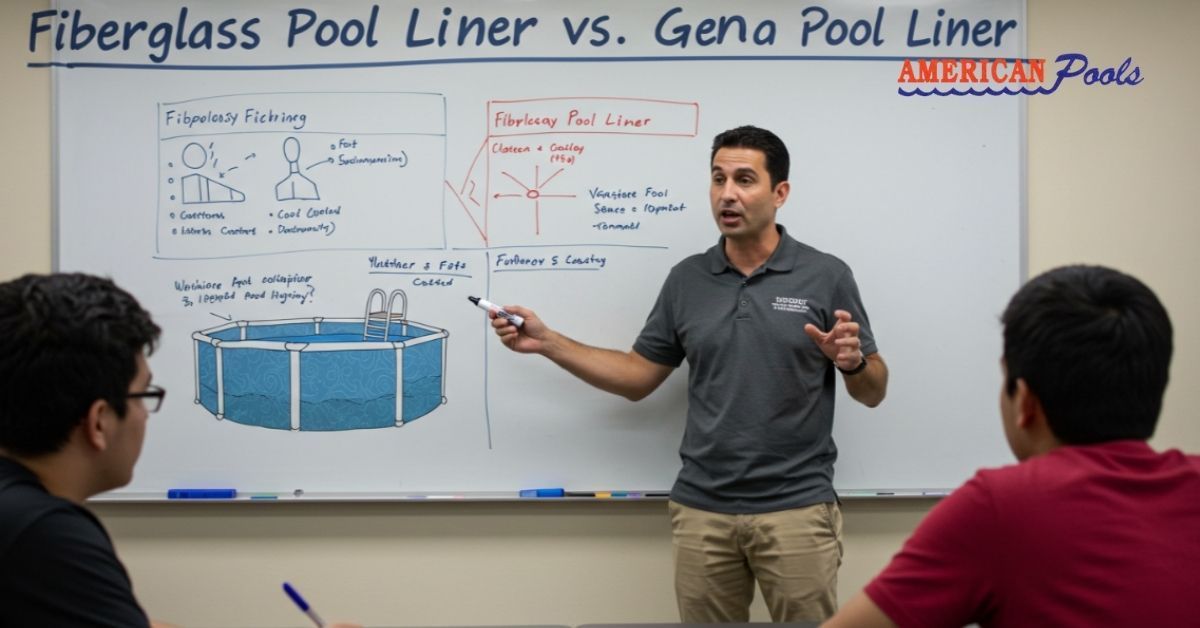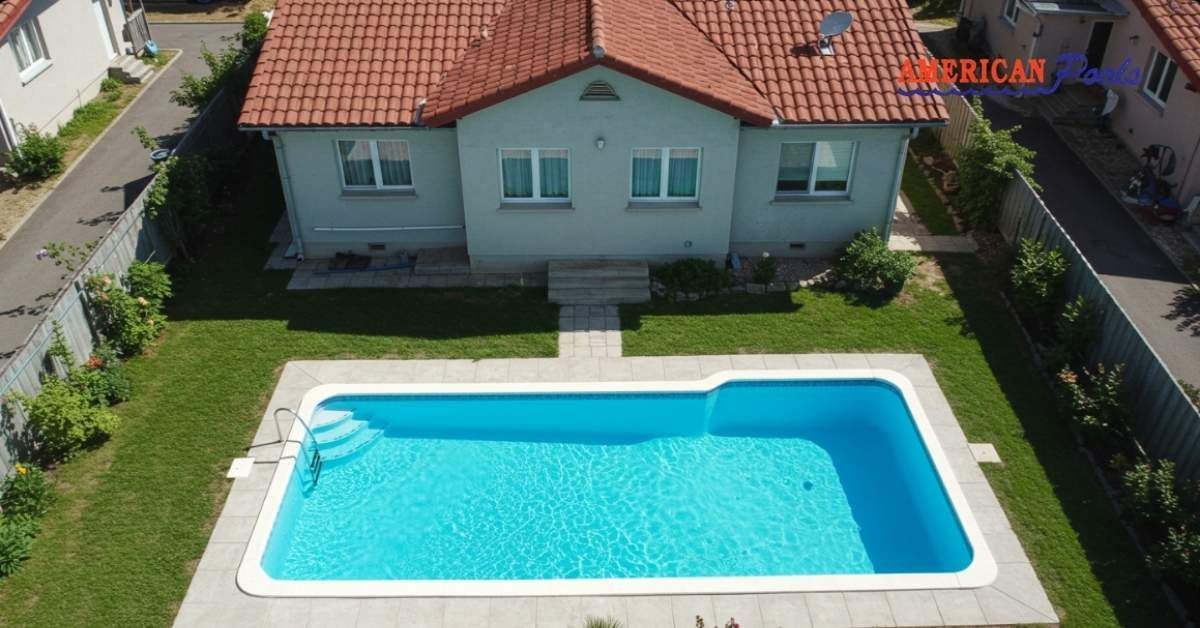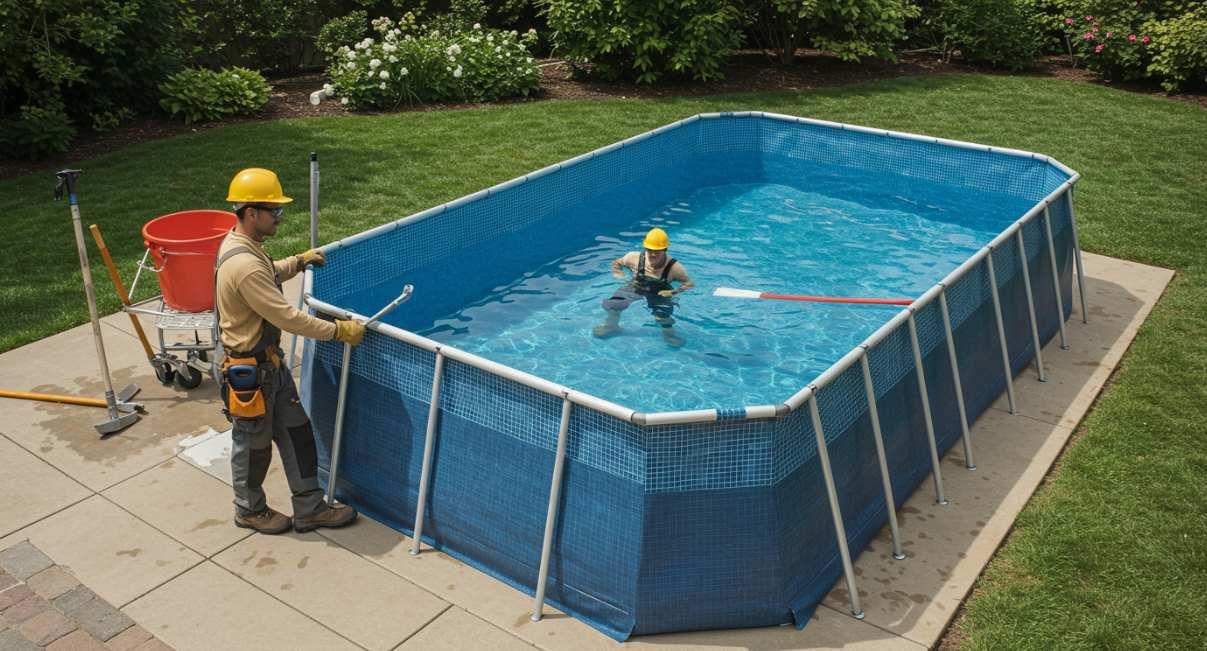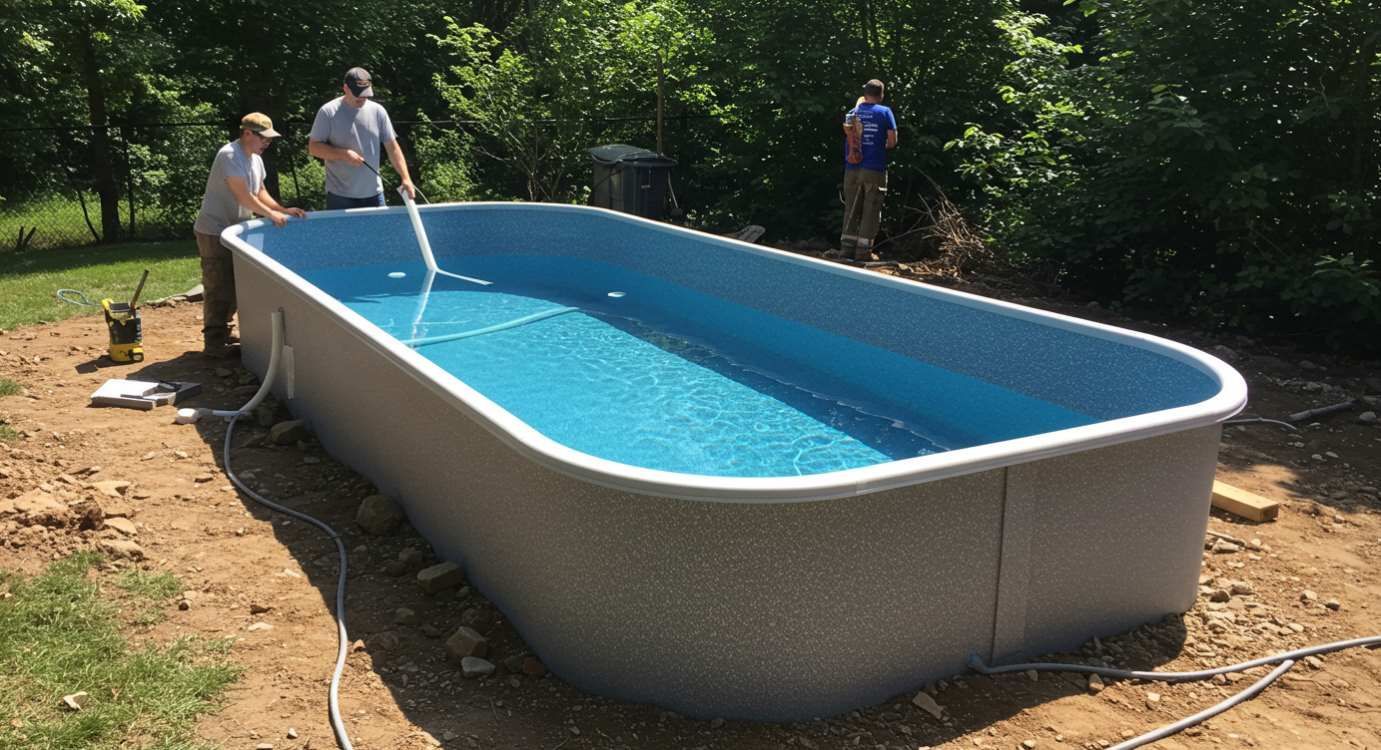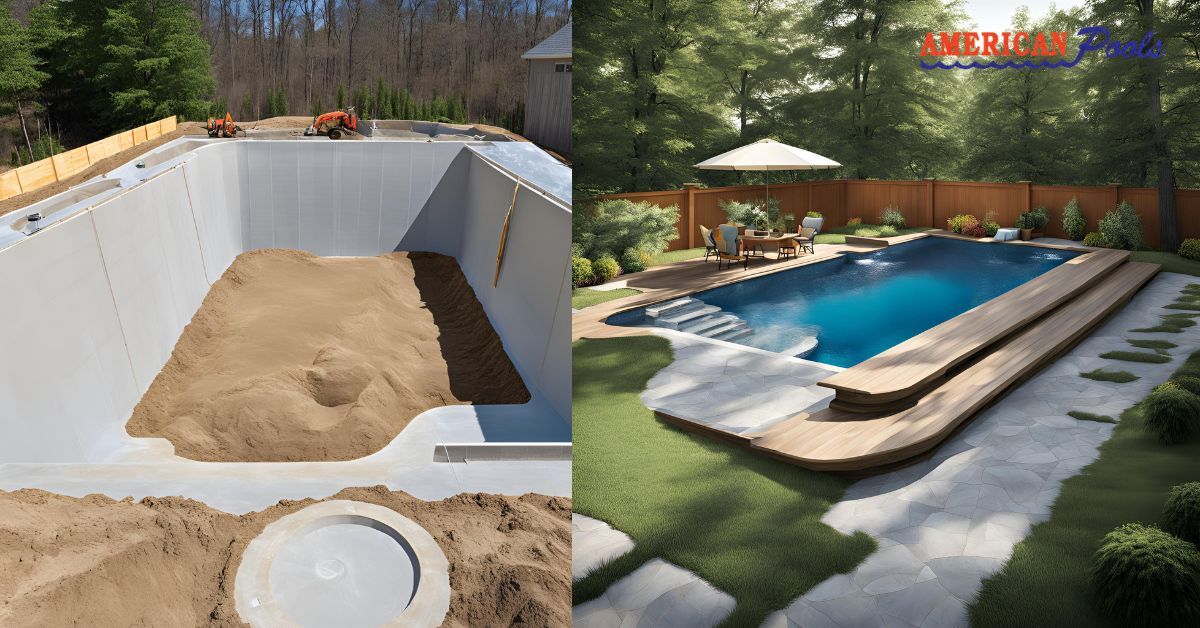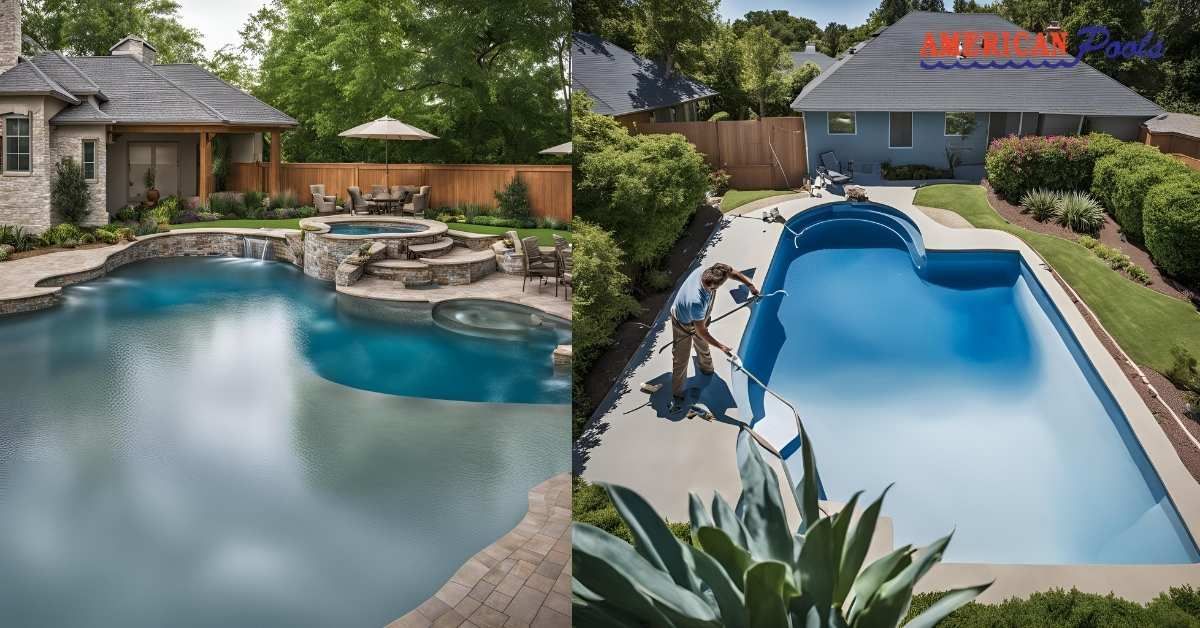Can a Fiberglass Pool Be a Saltwater System?
Is Saltwater Safe for Fiberglass Pools?
If you're a homeowner or commercial property manager exploring modern pool care options, you've probably asked yourself: "Can a fiberglass pool be a saltwater system?" The short answer is yes—fiberglass pools are an excellent match for saltwater systems.
At American Fiberglass Pools, we’ve been in the business of fiberglass pool installation, resurfacing, and repair for over 50 years. And one thing is clear—saltwater systems and fiberglass pools complement each other beautifully, offering long-term comfort, cost-efficiency, and lower maintenance needs.
Let’s dive into the details so you can make the right decision for your pool.
What Is a Saltwater Pool System?
Contrary to what many believe, saltwater pools still use chlorine—just in a gentler, more efficient way. A saltwater system involves a salt chlorine generator, which converts dissolved salt into chlorine via electrolysis.
Benefits of Saltwater:
- Softer water feel
- Reduced eye and skin irritation
- No harsh chlorine odor
- Lower ongoing chemical costs
In a well-maintained fiberglass pool, this system works smoothly and safely—as long as the installation and water chemistry are handled correctly.
Why Fiberglass Pools Are Perfect for Saltwater Systems
Fiberglass pools are made with a non-porous gel coat, which makes them highly resistant to both chemical damage and algae growth. This surface does not degrade under salt exposure the way some other materials do.
Key Advantages:
- No plaster or liner to corrode
- Smooth surface helps prevent algae buildup.
- Less need for frequent scrubbing and harsh chemicals
Fiberglass is often recommended over concrete or vinyl when installing a saltwater system, especially for long-term durability and ease of maintenance.
Will Saltwater Damage a Fiberglass Pool?
With proper care? Not at all.
However, like any pool system, neglect or improper maintenance can lead to issues, especially with metal components like ladders, light fixtures, or heaters. It’s important to use saltwater-compatible equipment and maintain water chemistry within the recommended ranges.
Pro Tip from Our Team:
At American Fiberglass Pools, we educate our clients during every fiberglass pool installation or repair project on how to manage salt levels and calcium hardness to avoid issues like scaling or equipment wear.
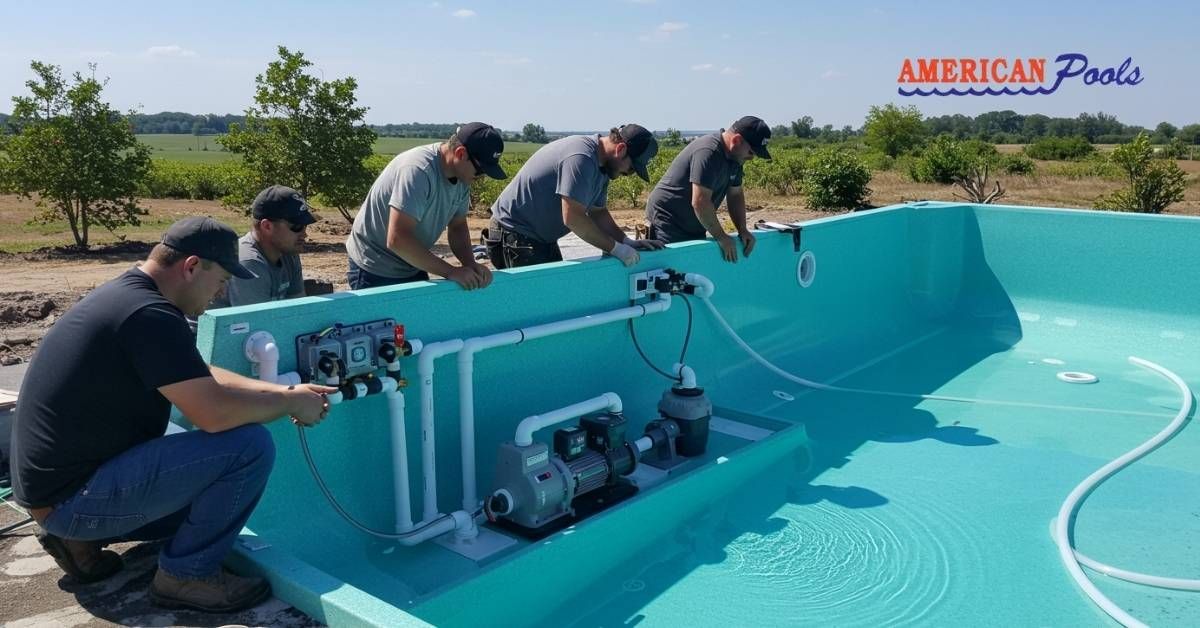
What to Watch For in a Saltwater Fiberglass Pool
While the match is great, a few precautions will help you protect your investment:
- Monitor Salt Levels: Typically 2700–3400 ppm
- Maintain Calcium Hardness: Avoid scale on surfaces and salt cells.
- Regularly Inspect Salt Cell: Clean every 3–6 months.
- Use Compatible Materials: Ensure ladders, rails, and fixtures are salt-safe
When in doubt, consult with a pool expert. We offer fiberglass pool repair and resurfacing services across Houston, ensuring your system stays efficient and your water stays crystal clear.
How About Baptismal Pools? Can They Use Saltwater?
Yes, with conditions. Baptismal pools made from fiberglass can use saltwater systems, provided the church or facility is able to maintain water chemistry and service the system regularly.
That said, many clients who use pools for baptismal purposes still prefer traditional chlorine for its straightforward management and setup.
If you're unsure whether saltwater is ideal for your baptismal resurfacing or pool renovation, our specialists at American Fiberglass Pools can help you weigh the options.
Pros and Cons of Saltwater Systems in Fiberglass Pools
| Pros | Cons |
|---|---|
| Softer water, no harsh smell | Higher upfront equipment cost |
| Less chemical storage | Metal components can corrode if unprotected |
| Gentler on skin and eyes | Requires electricity to power salt cell |
| Low chlorine levels | Salt cell needs periodic cleaning and replacement |
Conclusion: Should You Convert to a Saltwater System?
If you’re considering switching or installing a new pool, know this: fiberglass pools and saltwater systems are a perfect match when properly installed and maintained.
They offer a luxurious swimming experience with fewer chemicals and lower long-term maintenance costs. For homeowners, it means comfort and peace of mind. For commercial property owners, it ensures efficiency and durability.
At American Fiberglass Pools, we’ve worked with clients across Houston to install, convert, and maintain fiberglass pools with saltwater systems. Whether it’s a new installation, resurfacing project, or baptismal pool renovation, our team is ready to help you make the right decision with confidence.
FAQs
1. Can a fiberglass pool be a saltwater system?
Yes. Fiberglass pools are highly compatible with saltwater systems due to their smooth, non-porous surface that resists salt corrosion and algae buildup.
2. Is saltwater better than chlorine for fiberglass pools?
Saltwater systems are gentler on the pool surface and swimmers. While it still uses chlorine, the levels are lower, offering a more comfortable swimming experience with less maintenance.
3. Does saltwater damage fiberglass pool surfaces?
Not when properly maintained. Fiberglass handles salt exposure very well, but it's important to monitor calcium hardness and salt levels to avoid issues like scaling or corrosion of metal parts.
4. Can baptismal fiberglass pools use saltwater?
Yes, but it's less common. Saltwater can be used in baptismal pools made from fiberglass, but proper water chemistry and regular maintenance are crucial for safe and consistent use.

